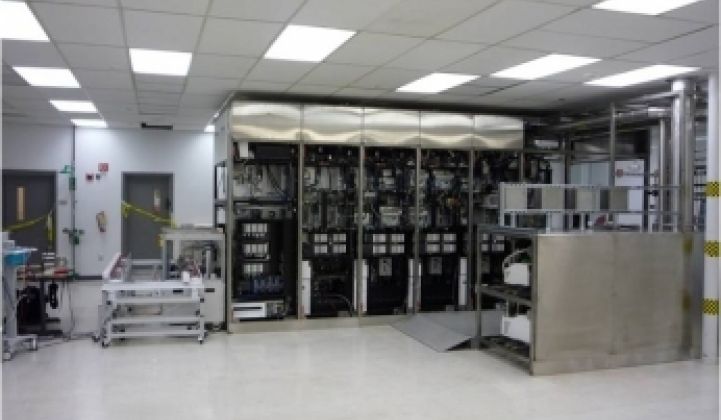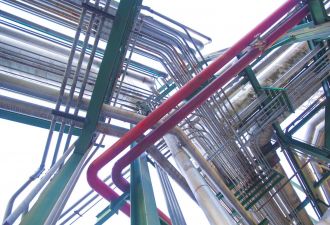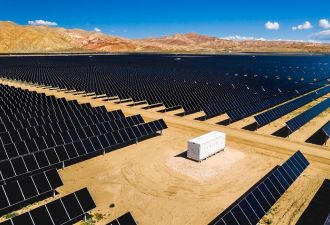Sunnyvale, Calif.--That whooshing, whirring machine in the video is how solar will one day compete directly against fossil fuels, according to AQT Solar.
The company, which makes copper indium gallium selenide (CIGS) solar cells, has come up with a manufacturing process that the company says allows it to produce relatively high efficiency solar cells fairly cheaply. AQT's cells right now exhibit a 14-percent efficiency, which leads to CIGS solar cells that are around 12 percent efficient. That's average to above-average in the context of the CIGS space. Miasole is around 11 percent and won't get to 13 percent in modules until the end of the year.
The cells cost around $1 per watt on the prototype production line, said Kirk Hayes, an Applied Materials alum that now works as the equipment and site operations engineer for AQT. CIGS cells for $1 per watt isn't competitive with First Solar, which can churn out modules for 79 cents a watt. But this is a prototype production machine -- the price will drop when AQT moves into mass production. To be this close already is somewhat intriguing.
"We already have most of our product sold for the next year and a half," he said during a factory tour in Sunnyvale yesterday. The first commercial shipments begin next month. The single machine now produces around 300 cells an hour and will crank up to 1,000 an hour.
The relatively low cost comes because AQT did not--unlike Nanosolar, Solyndra, Miasole, Solopower and a few other CIGS players--design its own manufacturing equipment. It adapted equipment from the hard drive industry. It took less than $15 million and two years to get the prototype machine in the video running. It took other CIGS vendors hundreds of millions and five years, said Hayes.
If AQT is right, then we can expect to see a proliferation of inexpensive CIGS manufacturers. In fact, Telio Solar and Nuvosun (which got money from Dow Chemical) are already pursuing off-the-shelf equipment strategies for CIGS. Miasole's Joseph Laia argues that generic equipment leads to generic solar cells. Miasole recently signed a deal to supply 600 megawatts worth of panels to juwi Solar in Germany; clearly, they must be doing something right, too. This manufacturing debate turns out to be a big issue in the thin-film solar world.
In any event, enjoy the debate in the video and the machine in action. There's some really interesting footage toward the end.



